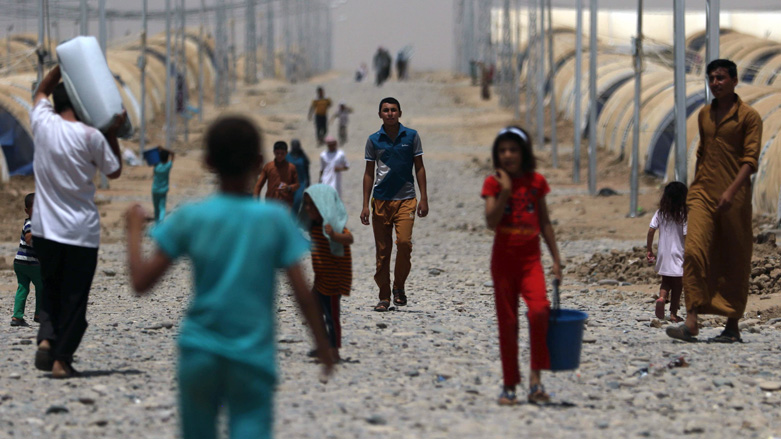EU pledges additional €2 million for displacement camps in Iraq's Nineveh

ERBIL (Kurdistan 24) – The United Nations announced on Friday that the European Union (EU) has pledged an additional €2 million ($2.24 million) to make "critical infrastructure improvements" to three camps that house roughly 35,000 internally displaced persons (IDPs) in Iraq's embattled province of Nineveh.
"While many displaced families have been able to return, we cannot forget about those who remain in camps," said Christos Stylianides, the European Commissioner for Humanitarian Aid and Crisis Management. "Ensuring that those displaced by fighting have access to humanitarian assistance remains a priority for the EU in Iraq."
The funds will be administered at the Jad’ah camps, located outside Qayyara, by the International Organization for Migration (IOM). They bring the total EU humanitarian contribution that IOM's mission in Iraq has received in 2019 to €5 million ($5.6 million).
Five years after the onset of the ISIL crisis and the subsequent massive internal displacement, over 1.5 million Iraqis continue to live in camps.
Earlier on Friday, Human Rights Watch (HRW) highlighted the experiences of Iraqi families struggling to find a safe home in a report that describes a government system that often puts its vulnerable citizens in danger.
Related Article: Iraq blocks displaced families from returning home, forces others to return: HRW
"This system has put these families in a purgatory that prevents them from returning home, imprisons them in camps, and forces them to endure dire conditions that portend bleak futures for their children," it read.
Since early 2018, authorities have aggressively pushed for returns of most displaced people, often by closing camps whether or not residents' areas of origin are safe or even inhabitable. Some who can’t return home are being moved to other camps that remain, while others are being denied return or being held against their will.
"With this additional allocation, in coordination with the Government of Iraq and local authorities, IOM will be able to improve the living conditions of camp residents," the UN statement read, adding that the work will focus on improving deteriorating road and drainage networks.
According to the UN, the Jad’ah camps currently host over 8,600 households, the majority from the districts of Hatra, Mosul, al-Ba'aj and Tal Afar, all areas where "return to their areas of origin is not feasible in the near future for a variety of reasons, including damage to their houses, continued insecurity, limited access to employment opportunities, and limited basic services in their hometowns."
"The conditions in many camps in Iraq have worsened over the last year due to natural wear-and-tear and limited investments," said IOM Iraq Chief of Mission Gerard Waite.
"Camps have remained in service for longer than initially expected and now need upkeep and improvement."
